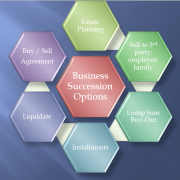How Do I Force A Trustee To Tell Me What’s In A Trust?
Baron Law LLC, Cleveland, Ohio, offers information for you to reflect upon while you are setting out looking for an estate planning attorney to help protect as much of your assets as you can. For more comprehensive information contact Baron Law Cleveland to draft your comprehensive estate plan to endeavor to keep more of your assets for your heirs and not hand them over to the government by way of taxes.
Trusts are one of the most useful tools in the estate planning tool box. Special needs trusts ensure vulnerable children and beneficiaries can receive bequests or inheritances without being knocked off of critical state and federal benefits while a simple family trust can guarantee income and assets placed within it last for generations and are, for the most part, protected from creditors and litigants. The lynchpin of any trust, however, besides the trust documents themselves, is the trustee. The agent in charge of managing trust assets and carrying out trust instructions.
A lot of faith and trust are placed within trustees. Unfortunately, not all trustees are up to the task and some even use their position for ill gain. Some trustees are lazy, some are disinterested. Other trustees are combative, others are downright criminals. Trustees come in all types. The process for removing a trustee, seeking civil or criminal action against a trustee, or simply finding out what a trustee knows all start at the same spot. A trust beneficiary, or other interested party, must force a trustee to tell them what they know and Ohio law has provided a process to do just that. The process is called a petition to compel an accounting or sometimes a citation to a fiduciary to file an account.
This process, naturally, is often the route of last resort when something has gone horribly wrong with a trustee or fiduciary. For example, failure of an executor to file a notice of admission for will to probate, or a failure render an account of an executor’s or administrator’s estate administration, or failure to file the first estate accounting within the 3-month time limit without good cause shown. Basically, citations to compel accounting are used when those entrusted to look after the money don’t follow the rules or tell anybody what they are doing. Again, getting a probate court involved with a difficult or non-responsive fiduciary should always be a last resort. As such, always consult an experienced Cleveland estate planning attorney to find out your best course of action in the circumstances.
How do I compel a trustee accounting?
Generally, to get a court to do anything, there has to be statutory language on the books that give you the authority/right to do something. Ohio law provides that particular qualified people can petition the court to force a fiduciary or trustee to appear and tell what they know and bring evidence to back it up.
“If a fiduciary neglects or refuses to file an account, inventory, certificate of notice of probate of will, or report when due,… the court at its own instance may issue, and on the application of any interested party or of any of the next of kin of any ward shall issue, a citation … to such fiduciary …. to compel the filing of the overdue account, inventory, certificate of notice of probate of will, or report.” O.R.C. § 2109.31(A).
What does a citation for accounting contain?
The citation or motion to compel is a legal document filed with a particular probate court that asks the court to use its authority to force a fiduciary or trustee to appear at a certain time in a certain place or face the consequences. Ohio law specifies that such a request must be a proper form so the court knows exactly what you’re asking the court to do and so the trustee or fiduciary knows exacts what to do to satisfy the court’s request and avoid any adverse consequences. So, what information does your request actually need to contain. Per O.R.C. § 2109.31(B):
(1) A statement that the particular account, inventory, certificate of notice of probate of will, or report is overdue;
(2) An order to the fiduciary to file the account, inventory, certificate of notice of probate of will, or report, or otherwise to appear before the court on a specified date;
(3) A statement that, upon the issuance of the citation, a continuance to file the account, inventory, certificate of notice of probate of will, or report may be obtained from the court only on or after the date specified…
A motion to compel accounting is a particular legal document that should be prepared by a licensed attorney. Nonconformity with the state and local rules of form and filing can waste a lot of time and money and frustrate a judge and their support staff, not ideal when your asking for the court’s help. Hiring a knowledgeable Ohio estate planning attorney will ensure your filing is accepted and in proper order.
What if a trustee doesn’t appear?
If a citation to compel accounting is issue from a probate and a fiduciary or trustee fails to file the requested documents or personally report prior to the appearance date specified in the citation, a probate court may resort to one or more of the following:
The removal of the fiduciary or trustee;
A denial of all or part of the fiduciary fees;
A continuance of the time for filing the requested documents;
An assessment against the fiduciary of a penalty of one hundred dollars and costs of twenty-five dollars for the hearing, or a suspension of all or part of the penalty and costs; or
That the fiduciary is in contempt of the court for the failure to comply with the citation and that a specified daily fine, imprisonment, or daily fine and imprisonment may be imposed against the fiduciary, beginning with the appearance date, until the account, inventory, certificate of notice of probate of will, or report is filed with the court;
Furthermore, if a fiduciary or trustee fails to appear in court on the specified date on the citation, a probate court can even go as far as ordering them to be taken into custody by a sheriff and forcibly brought to court.
The potential consequences facing non-compliant fiduciaries are severe, however, utilizing the court should only be used in extreme circumstances or as a last resort. As such, consult experienced Cleveland estate planning attorney before doing anything so serious. Doing so will ensure that the process is done correctly and expediently.
Helping You And Your Loved Ones Plan For The Future
About the author: Mike E. Benjamin, Esq.
Mike is a contracted attorney at Baron Law LLC who specializes in civil litigation, estate planning, and probate law. He is a member of the Westshore Bar Association, the Ohio State Bar Association, the Cleveland Metropolitan Bar Association, and the Federal Bar Association for the Northern District of Ohio. He can be reached at mike@baronlawcleveland.com.
Disclaimer:
The information contained herein is general in nature, is provided for informational and educational purposes only, and should not be construed as legal or tax advice. The author nor Baron Law LLC cannot and does not guarantee that such information is accurate, complete, or timely. Laws of a particular state or laws that may be applicable in a given situation may impact the applicability, accuracy, or completeness of the preceding information. Further, federal and state laws and regulations are complex and subject to change. Changes in such laws often have material impact on estate planning and tax forecasts. As such, the author and Baron Law LLC make no warranties regarding the herein information or any results arising from its use. Furthermore, the author and Baron Law LLC disclaim any liability arising out of your use of, or any financial position taken in reliance on, such information. As always consult an attorney regarding your specific legal or tax situation.











